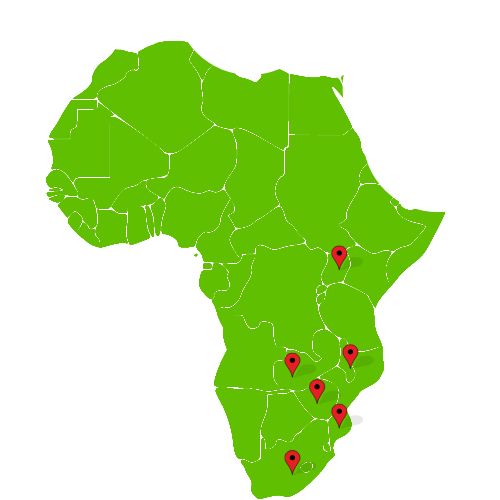
Frequently Asked Questions
Q: What does LPG stand for?
A: Liquid Petroleum Gas
Q: Where does LPG come from?
A: In the process of making petrol from crude oil, one of the by-products is a mixture of petroleum gases. The mixture is made-up of mainly Propane and Butane
Q: Can a cylinder be overfilled?
A: Yes. Cylinders should only be filled to 80% of the cylinder capacity. This allows for gas expansion/vaporization into the remaining 20% space.
Q: When can the cylinder burst?
A: Cylinders are made of such high safety standards that with normal / proper use, they will not just burst. If the cylinder however is heated up (on a flame or a stove for instance) the cylinder could get red hot and burst open. It will cause a very serious fire and damage to property. A cylinder should never go on a stove
Q: Why does LP Gas smell?
A: In its natural form, LPG is odourless. In order to assist in detecting gas leaks, an additive called Ethyl Mercaptan is added to the mix. This stinks like rotten eggs and the smell will increase as the cylinder empties out.
Q: How do I detect a gas leak?
A: Mix some soap (like sunlight liquid) and water to make a soapy solution. Pressurize the gas appliance by opening the gas valve (whilst it is connected to the gas appliance). Cover all the connections with this soapy solution using a sponge. If there is a leak, bubbles will form.
Q: Is LP Gas toxic?
A: No, but if a sufficient amount is inhaled, you could get sick and even suffocate. That is why it is important to have adequate ventilation at all times.
Q: What to do in case of an LPG fire?
• Stop further sources of ignition.
* If the valve is accessible, close the valve at supply (cylinder).
• Contact the fire brigade.
• Raise the alarm and inform neighbors.
• If possible, take the cylinder outside.
• Where necessary, keep adjacent cylinders cool with a hose until help arrives.
• Do not try put out the fire with the hose.
• Keep fire extinguisher ready in case of further outbreak.
South Africa
Falcon Gas
Email: falcongas.sa@etgworld.com
Malawi
Falcon Gas
Email: falcongas.malawi@etgworld.com
Uganda
Coming Soon
Zambia
Falcon Gas
+260 973 014 552/ 076 059 1055
Email: falcongas.zm@etgworld.com
Zimbabwe
Falcon Energy
Email: peter.mukawu@etgworld.com
Mozambique:
Coming Soon

